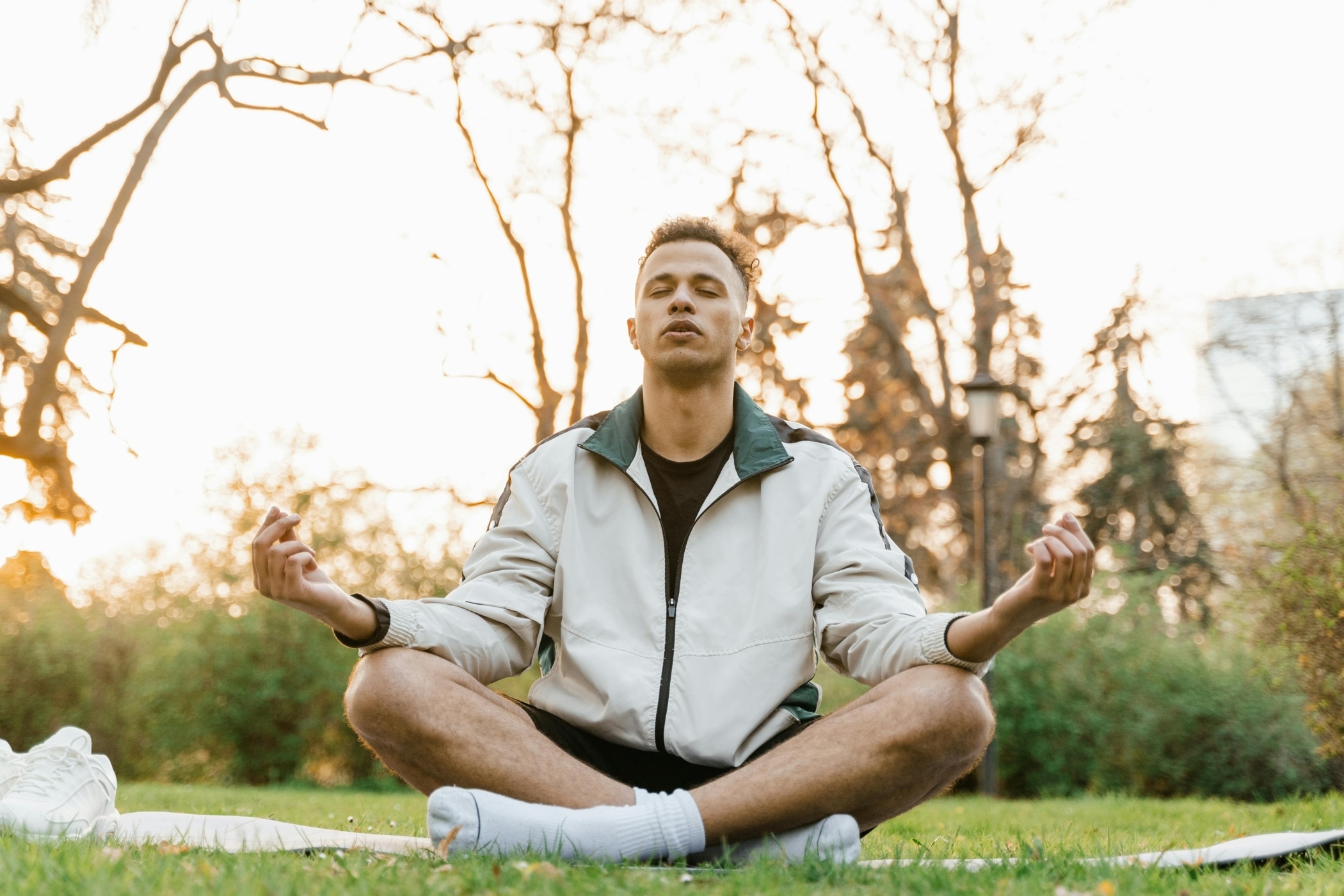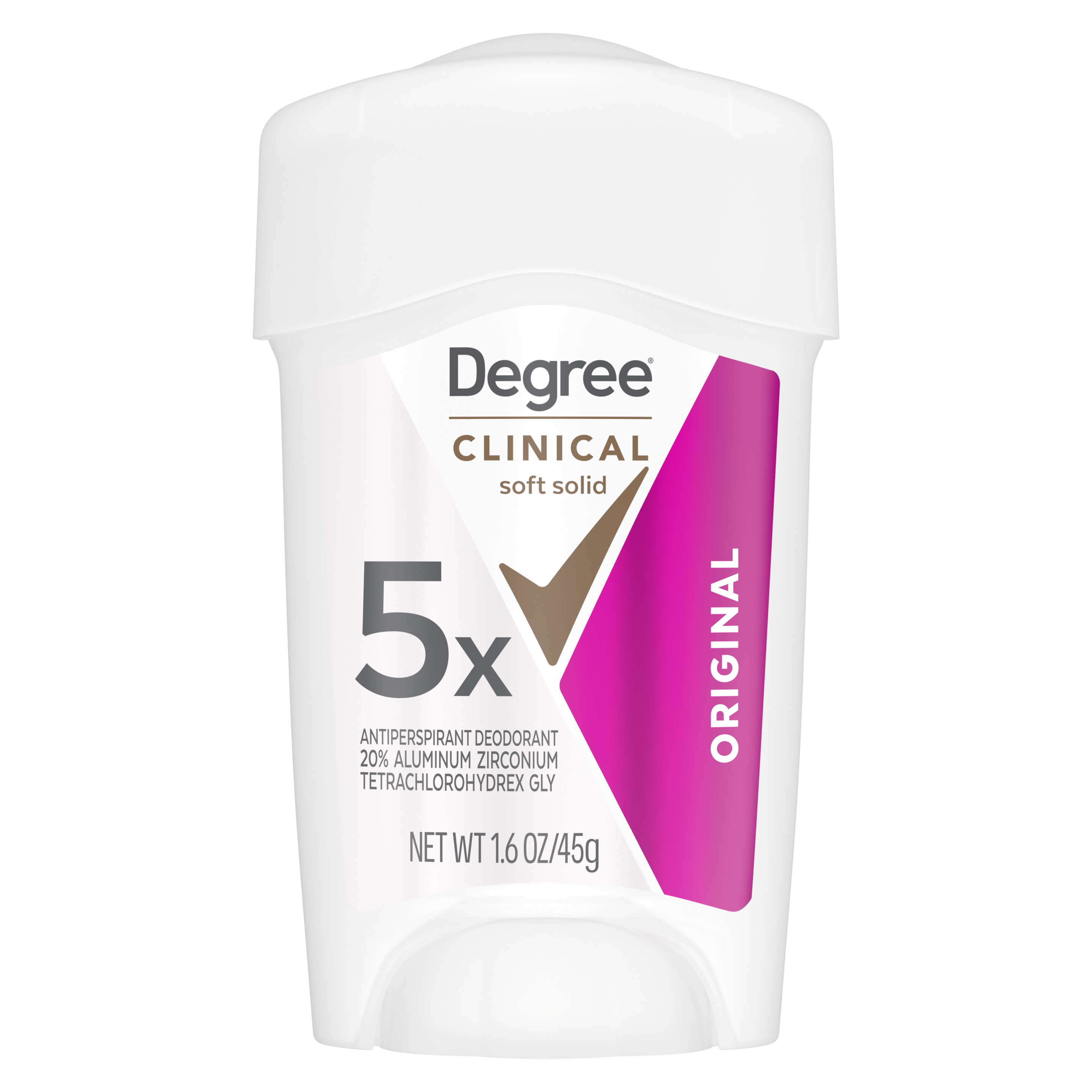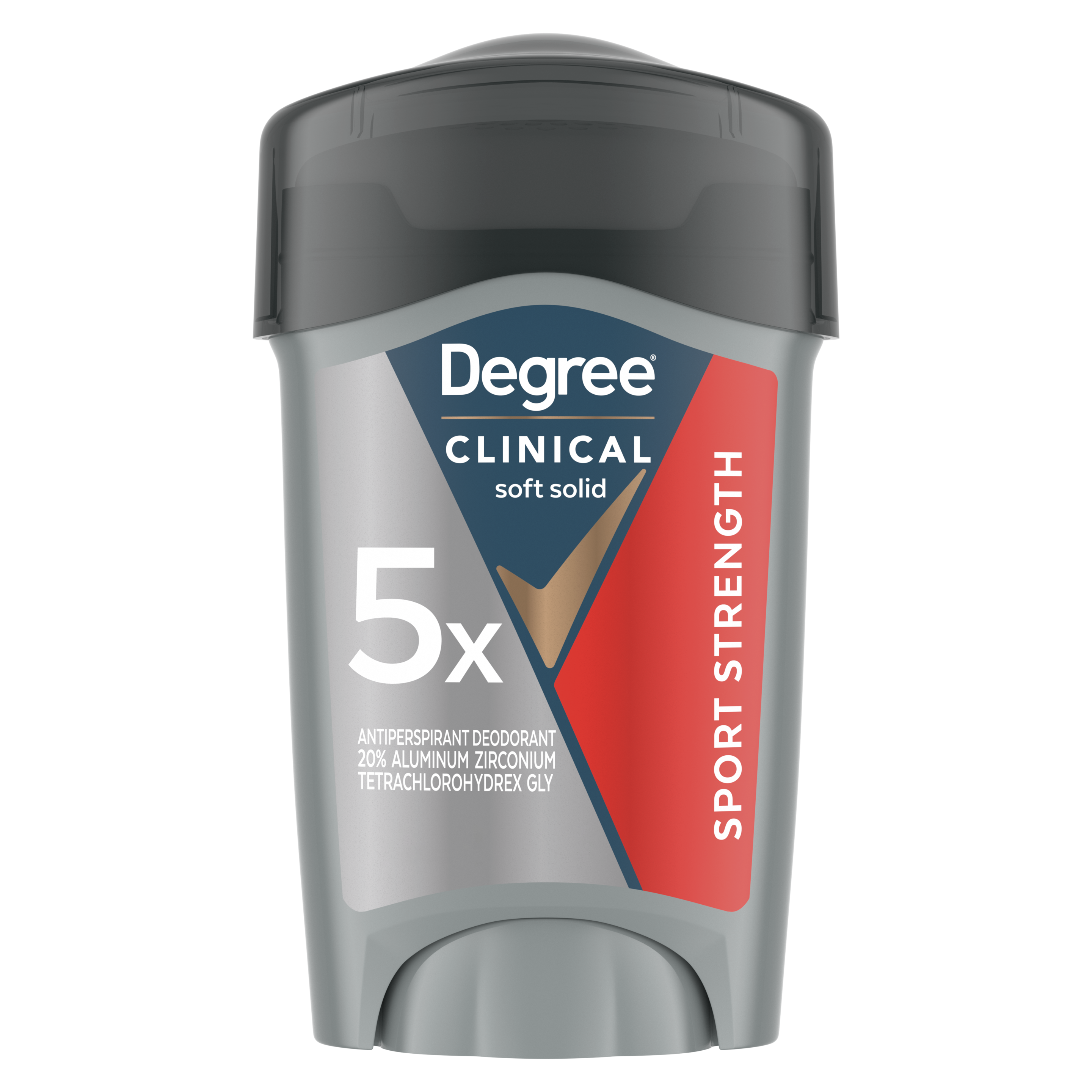UNDERSTAND ANXIETY SWEATING AND HOW TO MANAGE IT
Anxiety can be a real sweat-inducing beast. We’ve all been there—drenched in sweat during a stressful situation, thinking, “Why do I sweat when I get tense?” Anxiety sweating is a common issue that can disrupt your day-to-day life. But don't worry, we’re here to help you understand why it happens and what you can do about it.
CAN ANXIETY CAUSE SWEATING?
Anxiety can cause sweating because your body’s fight-or-flight response kicks in when you’re nervous. This is an ancient survival mechanism that prepares your body to either fight off a threat or run away from it. Your nervous system sends signals to your sweat glands, telling them to start producing sweat to cool you down. This is why you might find yourself sweating buckets during a job interview or a first date, and leave you wondering, “Why do we sweat when nervous?”
Anxiety comes in many forms, and understanding the different types can help you recognize what you or someone you care about might be experiencing.¹
Generalized anxiety disorder (GAD)—feeling anxious about many issues and situations, like performance at school or work, family members’ safety, being a perfectionist, and catastrophic world events like earthquakes.
Social anxiety disorder—an overwhelming fear of social situations, embarrassing yourself, being the center of attention, and getting negative feedback, especially when speaking in front of others or meeting new people.
Panic disorder—regular sudden feelings of panic or fear, aka panic attacks, often for no apparent reason.
Phobias—like claustrophobia (fear of small spaces) or agoraphobia (fear of leaving the house).
Post-traumatic stress disorder (PTSD)—anxiety triggered by any reminder (sight, smell, sound or thought) of distressing, frightening, or very stressful events that have happened in the past.
WHEN ANXIETY SWEATING IS NORMAL VS. A MEDICAL CONCERN
It’s completely normal to break a sweat when you’re feeling anxious. But if you find yourself sweating excessively, even in situations where you’re not particularly anxious, or if sweating is interfering with your daily life and confidence, it might be worth talking to a doctor. You could be dealing with a condition like hyperhidrosis (excessive sweating), which is treatable with the right care.
Seeking help isn’t a sign of weakness—it’s a step towards feeling more comfortable in your own skin.
HOW TO STOP ANXIETY SWEATING NATURALLY
Nervous sweating can feel frustrating and uncontrollable, but you start by calming your body’s stress response and regulating sweat production. Here are some steps on how to stop nervous sweating:
Do breathing exercises and apply relaxation techniques
One of the best ways to manage anxiety sweating is through breathing exercises. Try this simple technique:
1. Breathe in slowly through your nose. Take a deep, steady breath, letting the air fill your lungs and flow down into your stomach. Feel your belly rise as you breathe in.
2. Hold your breath for a few seconds. If it feels comfortable, pause and hold your breath gently. This gives your body a moment to settle.
3. Bold: Exhale slowly through your mouth. Let the air escape gradually, like you’re blowing out a candle. Feel your shoulders drop as you release the tension.
4. Repeat until you feel calmer. Keep going for a few rounds, letting each breath ground you and help your body unwind.

Try mindfulness and cognitive tricks
Mindfulness can be a powerful tool in reducing anxiety. Focus on the present moment and try to distract your mind from the source of your anxiety. Cognitive tricks like positive self-talk and soothing techniques can also help. Remind yourself that it’s okay to feel anxious and that the feeling will pass.
Hydrate, eat well and make small lifestyle habits
Drink plenty of water to help regulate your body temperature and reduce sweating. Try to limit caffeine and alcohol, as they can trigger anxiety and make sweating worse. Eat a balanced diet, get regular exercise, and prioritize sleep to all help manage anxiety and keep excessive sweating in check.
Taking care of your body is a powerful way to support your mind!
WHY ANXIETY SWEAT SMELLS WORSE
Not all sweat is created equal. We have two types of sweat glands: apocrine and eccrine. Eccrine glands are all over your body and produce a watery sweat that helps cool you down. Apocrine glands, found in areas like your armpits and groin, produce a thicker sweat that can smell worse because it mixes with bacteria on your skin. Stress sweat often comes from apocrine glands, which is why it can be more pungent.
HOW TO PREVENT ANXIETY SWEATING WITH THE RIGHT PRODUCTS
Antiperspirants and deodorants
Antiperspirants and deodorants serve different purposes. Antiperspirants reduce sweat by blocking sweat glands, while deodorants mask odor. For stress sweating, antiperspirants are your best bet. Degree Clinical-Strength antiperspirants are designed for stress-related sweating. With motion-activated technology, Degree helps keep you dry all day. It’s a reliable choice for those high-pressure situations.
Sweat-proof clothing
The right clothes can be a total game-changer. Moisture-wicking fabrics pull sweat away from your skin, which help you stay dry and comfortable. In high-pressure moments, wearing breathable, sweat-resistant clothing can give you one less thing to worry about.
FAQs
Will anxiety cause night sweats?
Anxiety can trigger night sweats. Even while you’re sleeping, your body’s stress response can kick in, causing you to wake up feeling hot and drenched in sweat. This can happen after vivid dreams, restless thoughts, or during particularly stressful periods. If night sweats are frequent or disruptive, it might be helpful to explore relaxation techniques or talk to a healthcare provider to rule out other potential causes.
Can anxiety cause cold sweats?
Cold sweats from anxiety happen suddenly and are often triggered by stress or fear, while anxiety sweating is a more general response to nervousness and can occur anytime.
Can anxiety sweating be controlled without antiperspirant?
Relaxation techniques, mindfulness practices, and healthy lifestyle changes can all help manage anxiety sweating naturally. Simple habits like deep breathing, staying hydrated, and wearing breathable fabrics can make a big difference in keeping sweat under control.
Is anxiety sweating linked to hyperhidrosis?
Anxiety sweating can be a symptom of hyperhidrosis, but they are not the same. Hyperhidrosis is excessive sweating that can occur without a trigger.
Can anxiety cause cold sweats?
Cold sweats from anxiety happen suddenly and are often triggered by stress or fear, while anxiety sweating is a more general response to nervousness and can occur anytime.
Anxiety sweating might feel frustrating, but you’re not powerless against it. With a few lifestyle adjustments, calming techniques, and the right sweat protection, you can take back control and feel more comfortable in your skin. Remember, sweating is natural—it just means your body is doing its job. But if anxiety sweat is holding you back, a reliable antiperspirant like Degree can help you stay dry and confident, even during life’s most nerve-wracking moments. Deep breaths. You got this!
References
1. Anxiety disorders - Facts & Statistics. Anxiety & depression association of America.



